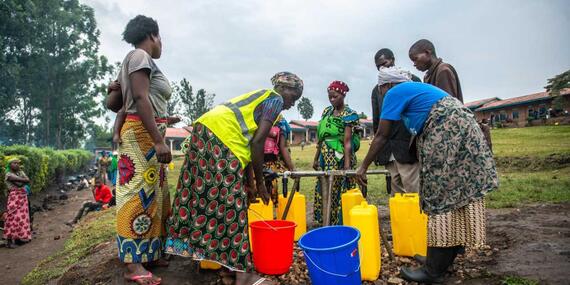Today's top news: DRC, Ukraine

Democratic Republic of the Congo
The Central Emergency Response Fund (CERF) has allocated $750,000 to UNICEF and the World Health Organization, following three weeks in a row of an above-average number of cholera cases in the Kiambi Health Zone in Tanganyika province. This is in the south-east of the country.
This is the second time this year that CERF has released funding for anticipatory action against cholera in the DRC.
The Humanitarian Coordinator there, Bruno Lemarquis, said the allocation will allow for vital assistance to more than 100,000 people. UN agencies and our local partners will be working to rapidly detect cases, provide medical care, ensure access to safe water and sanitation, and promote safe hygiene practices to reduce the spread of the disease.
Ukraine
The UN Humanitarian Coordinator for Ukraine, Denise Brown, condemned an attack that hit a vehicle of the national non-governmental organization Proliska while their team was delivering humanitarian aid to families in a village of the Kharkiv region, less than one kilometre from the border with the Russian Federation.
Fortunately, the team could take cover and no one was injured, although their car – a clearly marked humanitarian vehicle – and some homes in the village were damaged, according to Proliska.
This was the third attack affecting humanitarian aid in Ukraine this week alone, at a moment when people need this support the most. Other attacks have also left civilians killed and injured, including in Kyiv and Zaporizhzhia last night.
Ms. Brown said these attacks underscore the challenges humanitarians in Ukraine are facing to carry out their life-saving work, exacerbated by the lack of access to support Ukrainians in areas currently under Russian control.
Between January and May of this year, nearly 90 incidents impacting humanitarian operations were reported in Ukraine. More than half of them had a moderate to severe impact on the delivery of assistance.
Ms. Brown also said humanitarians have one purpose: saving and protecting the people of Ukraine whose lives have been upended by Russia's invasion. Nearly 18 million people in Ukraine need humanitarian aid. That assistance and the workers who deliver it must be protected under international humanitarian law.
